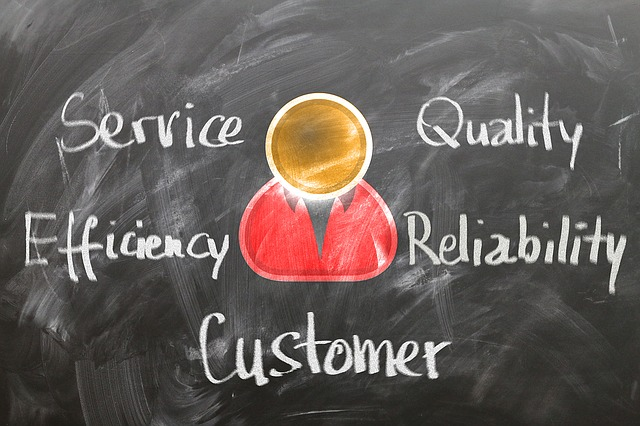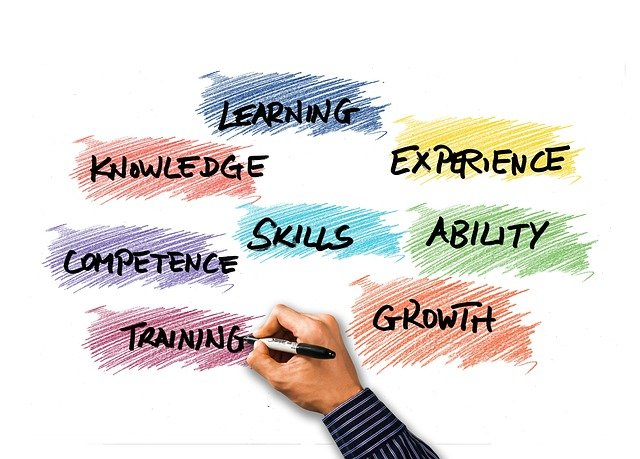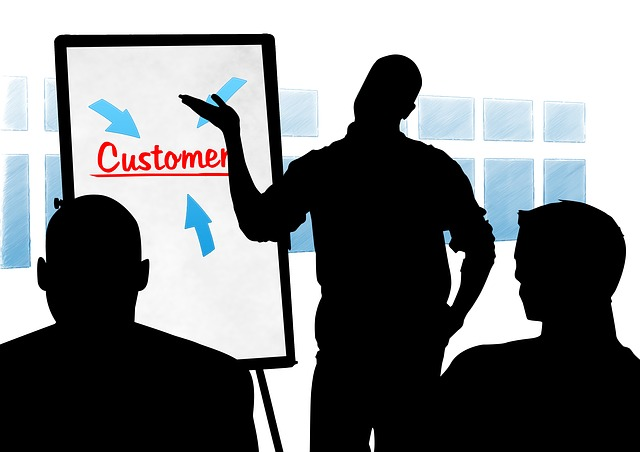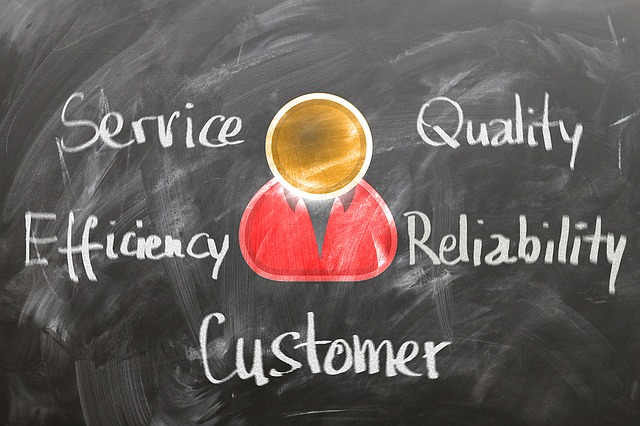The Ultimate Guide to Training for Customer Service & Support

Why is customer support training so important?
According to the Harvard Business Review, the cost of acquiring a new customer can be anywhere between 5 and 25 times the cost of servicing existing customers. For this reason, excellent customer support is the key to a successful business. After all, happy customers are repeat customers. They’re also more likely to recommend your company to their friends and family. That’s why it’s so important to invest in customer support training.
By teaching your employees how to handle customer inquiries and complaints, you can ensure that every customer has a positive experience with your company. In addition, customer support training can help to build team cohesion and morale. When everyone is on the same page and working towards the same goal, it’s easier to provide excellent service. So if you’re looking to take your business to the next level, hiring the right customer support team is essential, and then followed by outstanding training of all team members.
How to hire the right people for customer service skills?

There are certain traits that effective customer service professionals share. Firstly, they are results oriented and always looking for ways to improve the customer experience. Secondly, they have excellent communication skills and are able to build rapport easily. Finally, they are patient and able to deal with difficult customers in a calm and professional manner.
When hiring for customer service roles, it is important to look for candidates who demonstrate these traits. One way to do this is to ask behaviour-based interview questions that will give you insight into how the candidate has handled difficult customer service situations in the past. Another effective method is to give the candidate a role-play exercise during the interview so that you can see first-hand how they would handle a real-life customer service scenario.
By taking the time to hire the right people, you can be confident that your customer service team will be effective and provide a positive experience for your customers.
TIP: Hiring the right attitude is more important when building customer service teams.
What are the skills you should look for in your customer service hires?

When looking for customer service hires, you should look for candidates who can demonstrate:
- Have excellent communication skills and are able to build rapport easily.
- That they are results oriented and always looking for ways to improve the customer experience.
- Be patient and able to deal with difficult customers calmly and professionally.
During the interview process, makes sure that the candidate demonstrates behavioural and basic skills that support these qualities of great customer service. Remember, they are the customer-facing team that is tasked with ensuring customer loyalty & delight.
Excellent communication skills
Communication is the most essential skill a customer service agent must have. So when hiring, you must consider this one characteristic ahead of any other. Therefore, the interview process must provide many opportunities for the candidates to demonstrate this skill.
If an applicant has trouble communicating with you, the same will likely apply to your clients, which will cause them problems.
While customer service training can help with communication details and languages which help make support conversations work, it’s hard to learn how to communicate.
Demonstrating product knowledge or service
A genuine interest in your company’s offerings is a valuable skill, as it suggests that the customer service agent will be more engaged with their work and better equipped to solve customer problems.
It is also an important proxy that indicates whether a candidate will go out of the way to satisfy customers’ needs and not provide stock answers that destroy customer relations.
Patience and the ability to deal with difficult customers
Customers can be angry and irrational, but a great customer service agent will be able to keep their cool under pressure.
The ability to diffuse difficult situations is a valuable skill, as it protects the customer service agent from burnout and ensures that the customer feels heard and valued.
What does a customer service training program look like?

When you hire your new sales representative, you must start training them. It is, therefore, essential that effective customer training improves and develops upon the minimum attitude and skill sets you have identified.
The customer service training program should:
- Include a comprehensive overview of your company, products, and services.
- Development of soft skills, including rapport and good communication skills.
- Learn and practice the value of active listening during customer interactions.
- Develop the emotional intelligence of the team members.
- Provide role-playing opportunities so that the sales rep can practice handling different types of customer complaints and inquiries.
- Give the new customer service reps a chance to shadow more experienced customer service reps.
- Encourage customer service teams to share helpful tips and service knowledge of outstanding customer care that they have experienced elsewhere or in previous roles.
- Provide continuing feedback and coaching to ensure exceptional customer service is engrained after the training.
- Consider recording your training sessions and customer interaction. This will enable you to develop an online course to swiftly disseminate best practices. Modelling excellence in this way will enable you to develop dynamic training materials to support customer service employees, old and new.
- Create an online forum whereby customer service teams can seek advice on dealing with particular situations and other training tips.
- Invite actual customers to participate in the training. There is nothing better than direct customer feedback to ensure you meet or exceed customer expectations.
Customer service training programs are an essential investment for any company that wants to provide excellent customer service. By taking the time to hire the right people and train them properly, you can be confident that your customer service team will be effective and provide a positive experience for your customers.
How do you coach customers?
What do you mean by “coach customers?” A customer is an incredible asset to you; not only do they pay for your product or service, but they are potentially your greatest salesperson! The more they love and appreciate all you do, the more they will talk about you.
Of course, this has the potential to be a double-edged sword. If you upset them, they are likely to share that information more readily than if you just met their expectations. But this is the seam of gold in developing great customer relations.
Each customer is giving you the opportunity to turn a one-time purchase into a lifelong relationship.
There are several ways you can “coach” your customers:
- Thank them for their business – this seems like common sense, but so few businesses take the time to do it. You can thank them in person, with a handwritten note, or even with a simple email.
- Make it easy for them to do business with you – if you make it hard for customers to give you their money, they will take their business elsewhere.
- Ensure your website is easy to navigate, your checkout process is straightforward, and your customer service representatives are helpful and knowledgeable.
Above all, communication is key, don’t wait for a problem to arise for your client support team to shine. Appropriate, supportive and intentional communication is critical.
What are the 7 pillars of customer service?

The seven pillars of customer service are:
1. A positive attitude
2. Clear communication
3. Listening skills
4. Knowledge of your product or service
5. Patience
6. Taking ownership of the problem
7. Helpfulness
These seven pillars are essential in providing excellent customer service. By ensuring that your customer service team has these skills, you can be confident that your customers will have a positive experience with your company.
Positive attitude:
A positive attitude is essential in providing excellent customer service. This means being friendly, helpful, and upbeat when interacting with customers.
Clear communication:
It is important that customer service representatives are able to communicate clearly and effectively. This means being able to explain things in a way that the customer can understand, using simple language and avoiding jargon.
Listening skills:
Customer service representatives need to be good listeners in order to understand the needs of the customer. This involves active listening, which means paying attention to what the customer is saying and asking clarifying questions if needed.
Knowledge of your product or service:
It is important for customer service representatives to have a good understanding of the products or services they are selling. This way, they can answer questions and resolve problems effectively.
Patience:
Patience is critical in dealing with customers, especially when they are angry or upset. It is important to remain calm and professional in order to diffuse the situation.
Taking ownership of the problem:
Customer service representatives need to take ownership of the problem and see it through to resolution. This means taking responsibility for finding a solution and following up with the customer afterwards to ensure that the issue has been resolved.
Helpfulness:
Customer service representatives should be helpful and willing to go the extra mile for the customer. This means going above and beyond to help them, even if it is not strictly part of their job.
By ensuring that your customer service team has these seven pillars, you can be confident that your customers will have a positive experience with your company.
FAQs

What is the goal of customer service training?
The goal of customer service training is to improve the skills of your customer service team. This includes teaching them the seven pillars of customer service, as well as specific skills such as active listening and clear communication. By improving the skills of your customer service team, you can improve the overall customer experience.
How do you prepare for customer service training?
There are a few things you can do to prepare for customer service training.
- First, make sure that you have a clear idea of what you want to accomplish with the training.
- Second, create a training plan that outlines the topics you will cover and the activities you will do.
- Finally, make sure to practice the skills you will be teaching so that you can be confident in your abilities.
How do you write a customer service plan?
There are a few things to consider when writing a customer service plan.
- First, you need to decide what your goals are for the customer service team.
- Second, you need to identify the skills that your team needs to improve.
- Finally, you need to create a plan of action that outlines how you will achieve these goals.
Your customer service plan should be specific, and you must be able to define measurable performance metrics so that everyone throughout your organization knows exactly what is expected of them.
What are the different types of customer service?
There are a few different types of customer service, all with the same objective outcome – delight and retain customers. Consider what your customers really want, not what is easy for you to provide. A few examples are:
1. Phone support
2. Email support
3. Live chat support
4. In-person support
5. Remote support
Remember, each type of customer service has its own set of best practices that should be followed in order to provide the best possible experience for the customer.
What is the role of the customer support team?
The role of the customer support team is to delight your customer at all times. They are often called upon to provide assistance to customers who are having problems with your product or service. This can involve answering questions, resolving issues, and providing guidance.
What makes a good customer service team?
The customer support team should be knowledgeable about your products and services, and they should be able to effectively communicate with customers. They should also be patient and helpful, and they should be able to take ownership of the problem and see it through to resolution.
Summary
You are in business to serve your customers and ensure customer retention and outstanding customer relationships.
World-class customer service must be developed and valued throughout your company and not just by customer-facing teams.
You must have a customer service training program that supports the continuous improvement of your customers’ experience.
The goal of the customer service training is to improve the quality of customer service so that it meets or exceeds customer satisfaction and avoids customer churn.
Customer service training programs are an essential investment for any company that wants to succeed.
Delighted customers are a competitive advantage that must never be an afterthought or outsourced. Doing so will destroy the customer goodwill & collateral you worked so hard to invest in creating.
It is essential that your management systems encompass customer service to ensure the measurement & improvement of this part of your business.
If you would like to know more about how customer service skills training will support your business, email us today at joelzimelstern@actioncoach.com or call 604 359 8008



